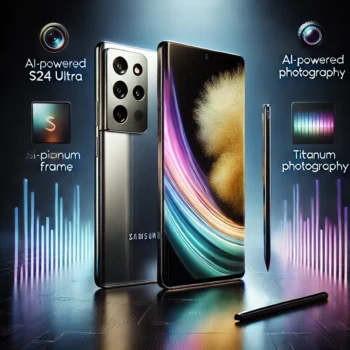
Apple is doubling down on its strategy of designing its own silicon, with a new wave of custom processors in development for upcoming product categories. According to a report from Bloomberg, the company is currently working on chips that could power everything from AI-optimized servers to smart glasses and future generations of Macs.
Smart Glasses Chip Underway – Without Full AR (For Now)
Among Apple’s latest chip projects is a specialized processor designed for a new wearable: smart glasses. These glasses are rumored to support voice interaction, photo capture, and audio playback, but won’t deliver full augmented reality (AR) capabilities—at least not in the first version.
This chip is reportedly built on low-power architecture similar to what’s found in the latest Apple Watch models but is being reengineered to support multiple onboard cameras while further reducing power consumption.
While Apple has yet to publicly confirm any details, production for the glasses’ chip is expected to begin in late 2026 or early 2027. If that schedule holds, a product launch could follow roughly two years later. As with most Apple silicon, Taiwan Semiconductor Manufacturing Co. (TSMC) is expected to handle fabrication.
Competing with Meta — Quietly
Apple’s smart glasses effort isn’t new. Insiders suggest the company has been exploring wearable eyewear for years. The long-term goal remains AR-enabled wearables capable of overlaying digital content on real-world views, but the company appears to be taking a measured approach.
In contrast, Meta has already entered the market, partnering with Ray-Ban on glasses that include voice and camera features, and plans to launch a display-equipped high-end model later in 2025. Apple seems to be targeting a similar entry-level experience initially—minus AR—under internal project codename N401, previously referred to as N50.
Sources say Apple envisions both AR and non-AR glasses, but is holding off on releasing a full AR product until the AI software ecosystem matures. Like Meta’s approach, Apple’s glasses may include environmental scanning through cameras, with AI-driven functionality assisting users in real time.
Chips Coming to AirPods and Apple Watch Too
In addition to glasses, Apple is reportedly exploring camera integration in future AirPods and Apple Watch models. Internally, a camera-equipped Apple Watch is known as “Nevis”, while a similar project for AirPods is dubbed “Glennie.” Both are believed to be targeted for release around 2027, using new in-house chipsets designed specifically for these features.
These developments highlight Apple’s ongoing expansion of its chip portfolio, led by SVP Johny Srouji, who oversees the company’s silicon efforts across devices.
M-Series Expands: M6, M7, and More
On the Mac front, Apple is preparing the next wave of processors, including the M6 (codename Komodo) and M7 (codename Borneo), along with a more powerful version internally called Sotra. These chips are expected to appear in future Macs and possibly Pro-level devices.
Before that, Apple plans to refresh its iPad Pro and MacBook Pro lineup later this year with the M5 chip, continuing its tradition of iterative performance improvements.
Building the Full Hardware Stack
Apple’s push into designing every core component of its products is part of a long-term strategy to own the full hardware-software stack. Earlier this year, the company introduced its first in-house 5G modem in the iPhone 16e, with a more advanced version, the C2, already in the pipeline for 2026.
As Apple moves further into wearables, AI computing, and new device categories, its in-house chip development remains key to innovation and differentiation in a competitive tech landscape.

